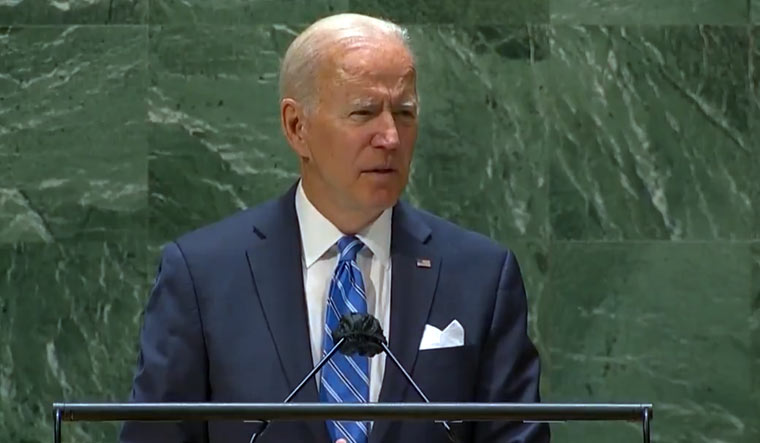US President Joe Biden, on Thursday, will hold the two-day virtual 'Summit for Democracy', with invitations extended to around 110 governments. The White House has offered three themes to focus the discussions: defending against authoritarianism, addressing and fighting corruption, and advancing respect for human rights. There is also a process for turning words into actions: leaders will be encouraged to make commitments on what they will do to strengthen democracy in their countries. These commitments will be reviewed at a second summit in a year's time, which it is hoped will be held in person.
In a geopolitical sense, the summit is a continuation of what Biden perceives as competition between democracies and autocracies such as Russia and China in the global stage. The former has time and again reiterated that democracies must prove they can deliver. Neither Russia nor China are invited to his summit, but to Beijing's anger, Taiwan will attend.
China has pushed back against the summit, questioning how a polarised country that botched its response to COVID-19 could lecture others, and said that efforts to force others to copy the Western democratic model are doomed to fail. Tian Peiyan, the deputy director of the party's Policy Research Office, said the pandemic exposed defects in the American system. He blamed the high COVID-19 death toll in the US on political disputes and a divided government from the highest to the lowest levels. "Such democracy brings not happiness but disaster to voters," he said at a news conference to release a government report on what the Communist Party calls its form of democracy, which is firmly under party control.
The US president has repeatedly framed differences with China in his broader call for the US and its allies to demonstrate that democracies can offer humanity a better path toward progress than autocracies. On the other hand, the Chinese Communist Party argues that strong central leadership is needed to maintain stability in a sprawling country that has been riven by division and war over the centuries. "In such a large country with 56 ethnic groups and more than 1.4 billion people, if there is no party leadership, and we uphold the so-called democracy of the West, it will be easy to mess things up and democracy will work the opposite way," Tian said.
The recent difficulties faced by some Western democracies have given Communist Party leaders more confidence in their system as they try to build China into a global power. State media often cite the chaos of the insurrection at the US Capitol after the last presidential election. The report issued Saturday said today's world is facing challenges of excessive democracy.
-Inputs from agencies




